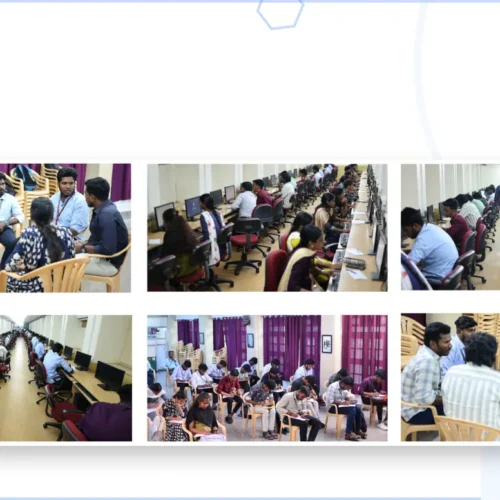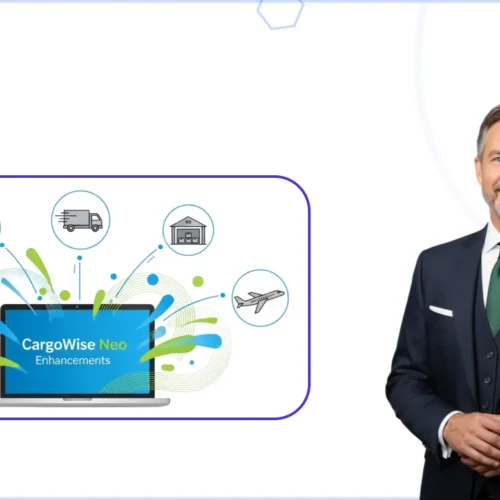Digital compliance is no longer optional for logistics companies operating in Jordan. The Income and Sales Tax Department (ISTD) has mandated electronic invoicing through the JoFotara system, requiring businesses to report Accounts Receivable (AR) transactions electronically. For freight forwarders using CargoWise, this means setting up the platform to handle e-Reporting and e-Invoicing seamlessly.
But while CargoWise provides the functionality, configuring it correctly is critical. Missteps in setup can lead to rejected invoices, compliance penalties, and unnecessary delays in cash flow. This guide explains how to prepare CargoWise for Jordan’s e-Invoicing requirements, what challenges to expect, and how to ensure smooth reporting through CargoWise.
Why is Jordan’s E-Invoicing Requirement So Important for Freight Forwarders?
The ISTD’s electronic invoicing mandate is designed to increase tax transparency, reduce fraud, and simplify compliance. For logistics providers, this means every eligible AR transaction must be reported electronically through JoFotara.
Failure to comply can create major risks:
- Rejected invoices leading to cash flow interruptions.
- Non-compliance penalties or audits.
- Delays in clearing goods occur if financial documents don’t match customs and tax records.
In a market where margins are already tight, forwarders can’t afford these disruptions. That’s why configuring CargoWise correctly is more than just a technical task, it’s a business-critical requirement.
What do You Need to Know Before Setting Up CargoWise for Jordan E-Invoicing?
Before diving into setup, it’s important to be familiar with:
- The System Registry in CargoWise.
- How to configure user and group security access.
- Adding registration numbers (such as Tax ID or National ID).
- Creating and managing Service Tasks.
If your team lacks this background, working with a certified CargoWise consultant can save significant time and prevent configuration errors.
How do You Obtain the Credentials for JoFotara?
The first step in enabling CargoWise for e-Invoicing is registering with the JoFotara portal. You’ll need to apply for:
- E-Invoice Client ID
- Client Secret
- Income Source Sequence Number
These credentials identify your business to the ISTD and allow CargoWise to transmit invoices through Jordan’s API. Without them, the system can’t send or validate electronic invoices.
Once received, they must be entered in CargoWise under:
Accounting > E-Reporting and E-Invoicing Configuration > Jordan (JO) E-Invoicing Credentials
How do You Configure Company and Branch Details in CargoWise?
Each login company or branch in CargoWise needs accurate registration numbers recorded in its Organization Proxy. This includes:
Supplier’s Tax Number (GST): Your official tax number from ISTD.
Supplier’s Income Source Sequence (BAN): The sequence number issued when you registered in JoFotara.
These values ensure invoices are linked to the correct entity during transmission. Missing or incorrect numbers will result in rejected submissions.
How do You Handle Receivables Organization Configuration?
E-Invoicing requires not only your company’s data but also the debtor’s correct identification details. Depending on the type of debtor, CargoWise must record:
Jordanian business: Debtor’s ISTD Tax ID.
Jordanian individual: Debtor’s National ID.
Foreign debtor: Passport number.
These identifiers are entered against the debtor organization record in CargoWise, ensuring every invoice can be transmitted with the correct debtor details.
Which System Registry Settings Should You Enable?
CargoWise uses registry settings to control how e-Invoicing functions. The key configurations for Jordan include:
- Enable E-Reporting Functionality – Receivables
- Activates automatic transmission of eligible AR transactions.
- E-Reporting Error Notification Group
- Defines a user group to receive error notifications if invoices fail submission.
- Compliance Sub Type Attribution Rule
- Determines whether invoices are sent as tax invoices, credit notes, or income invoices based on your registration status.
- Enable Print E-Invoice QR Code
- Ensures that DocBuilder invoices include the ISTD-required QR code.
- Restrict Negative Charges on AR Transactions
- Prevents posting invoices or credit notes with negative line amounts, as these are not accepted by ISTD.
What Service Task Handles Jordan E-Invoicing?
CargoWise includes a built-in service task called EJO – Jordan E-Invoice Processing Service Task. This task runs automatically to:
- Pick up eligible AR transactions.
- Convert them into the required XML format.
- Encrypt and transmit them via xT to JoFotara.
- Retrieve reporting status and update CargoWise with the results.
This service task should remain enabled at all times to ensure invoices are processed without manual intervention.
How does the Transmission Process Work in Practice?
Here’s how an invoice moves through the system once posted in CargoWise:
- CargoWise extracts invoice data in XML format.
- The data is sent to the CargoWise Global Electronic Invoicing Solution.
- xT maps the XML to Jordan’s JoFotara specification.
- The file is encrypted and transmitted to JoFotara.
- JoFotara returns the status to xT.
- CargoWise receives the update and displays it in the AR Transactions module.
If an invoice is rejected, CargoWise flags the error with a status like BER – Batched with Error, allowing your team to identify and correct the issue.
What Common Challenges do Forwarders Face in Jordan E-Invoicing?
Even with CargoWise configured, companies often face issues such as:
- Missing or incorrect debtor Tax IDs or National IDs.
- Misconfigured Compliance Sub Type rules.
- Custom invoice templates without the QR Code section.
- Posting errors due to negative line items.
These challenges highlight the importance of ongoing monitoring, error handling, and proper staff training.
When Should You Seek Expert CargoWise Help?
If your business handles high volumes of AR transactions or deals with complex debtor structures, relying solely on an in-house setup may not be enough. Certified CargoWise consultants can:
- Registry setup rules based on your tax registration status.
- Ensure templates are compliant with QR code requirements.
- Train staff to handle errors and resubmissions.
- Provide ongoing support as ISTD rules evolve.
Conclusion
Setting up CargoWise for Jordan’s e-Reporting and e-Invoicing is not just about compliance. It’s about protecting your cash flow, maintaining credibility with customers, and avoiding regulatory penalties.
By ensuring credentials are in place, debtor data is correct, registry settings are configured, and service tasks are running, you can create a reliable, automated invoicing process that keeps your business aligned with ISTD requirements.
At Elicit Technology, we help CargoWise users in Jordan and worldwide configure, optimize, and maintain their systems for compliance and efficiency. If your business needs support with e-Invoicing setup or troubleshooting, our certified CargoWise service partners at Elicit are ready to guide you every step of the way.
Ready to make your CargoWise setup compliant and future-proof? Contact us today to get started.






